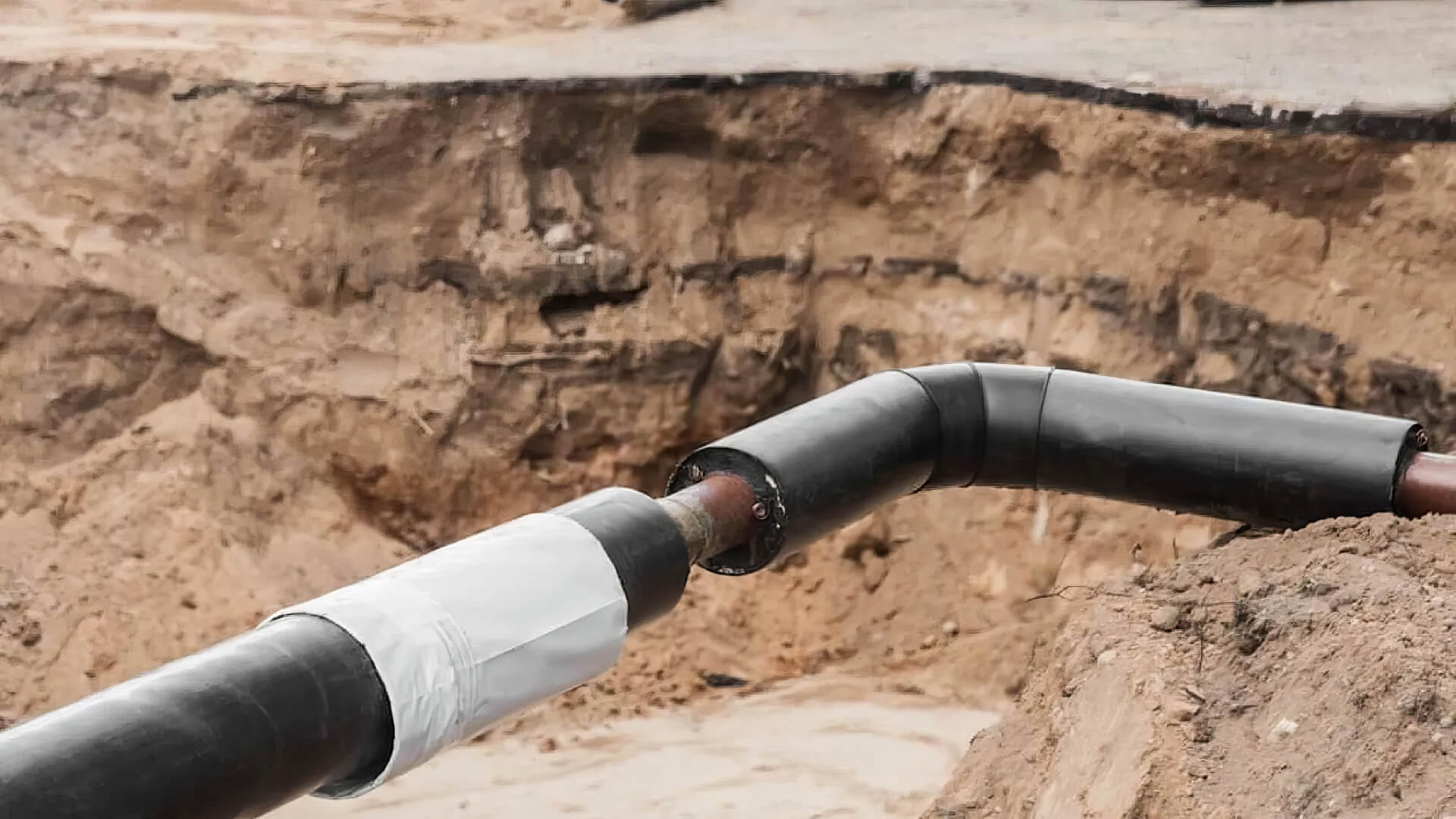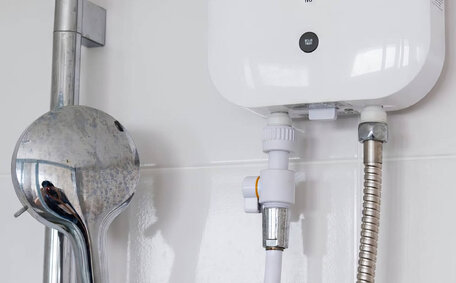Common Reasons a Gas Water Heater Fails
A gas water heater can fail for various reasons, such as:
- Pilot light going out - When your heater pilot light goes out, remember to check pilot light functionality, as it will cut off the gas supply to the burner. A draught or problem with the thermocouple can cause your pilot light to extinguish.
- Faulty gas valve - The gas valve regulates the gas flow. If it fails, gas may leak out or not flow at all.
- Sediment buildup - Minerals and rust in your tank water can accumulate at the bottom of the tank where water heaters can, which can clog the heating element.
- Leaking water tank - Damage or cracks in the tank can result in leaks and potential loss of water pressure.
- Pressure relief valve failure - The T&P valve is meant to release excess pressure. If it fails, there could be a buildup of dangerous pressure.
- Thermostat issues - A malfunctioning thermostat that fails to regulate water temperature or signal the burner can impair your heater’s performance.
Finding the water merely warm instead of hot can indicate gas line issues, venting disruptions affecting airflow, or system strain from excessive usage. Our team of gas hot water specialists can help accurately diagnose the problem your hot water heater is experiencing and assist with your hot water needs, getting your hot water working up and running in your house again.
Faulty Pilot Lights and Thermocouples
The pilot light is a small but crucial flame that ignites the main burner in your gas water heater. If the pilot light fails to stay lit or does not ignite properly, you may find yourself without hot water, leaving you with cold water while you wait for the hot water to return.
This pilot light works in conjunction with a thermocouple, a safety device that ensures gas flows only when the pilot is lit.
Some common issues that can arise with pilot lights and thermocouples include:
- Weak or blocked pilot flame - A constricted pilot flame prone to going out can result from dust, drafts, or low gas flow. This inadequate heating can disrupt the thermocouple operation.
- Faulty thermocouple - An ineffective thermocouple may not produce enough electric current to open the gas valve, often due to corrosion or wear over time.
- Dirty thermocouple connector - Buildup on the point where the thermocouple meets the gas valve can interrupt the electric signal.
- Gas valve problems - Issues with the gas valve itself may prevent gas flow even with proper thermocouple signalling.
Warning signs of a faulty heater pilot light/thermocouple include a lack of hot water in your shower, the smell of gas, excessive burner cycling, and constant pilot light outage. If you’re uncertain about needing a licensed gas fitter, our professionals can repair these components, ensuring your household’s hot water supply is restored.
Sediment Buildup and Inefficient Heating
Sediment, consisting of rust, minerals, and other debris from the water supply, can gather at the bottom of the water heater tank over time. This buildup insulates the water from the heating elements or burner tube, affecting your ability to enjoy more hot water.
As sediment accumulation increases, you’ll need to be aware of the following issues:
- Longer recovery times after using enough hot water, with fluctuating output temperatures
- Higher energy bills from the system working harder to provide more hot water through every faucet
- Eventual failure of heating elements or burners that overheat from reduced water contact
To minimise sediment accumulation:
- Ensure you flush the water heater as recommended by the manufacturer, typically every 6-12 months, to remove debris accumulation.
- Inspect the anode rod regularly and determine if you need replace it when worn out, as this protects your tank from corrosion
- Consider installing a whole house water sediment filter
Should excessive sediment build-up occur, our team can expertly descale or replace your hot water tank, reviving its heating efficiency and performance.
Gas Valve and Burner Malfunctions
The gas valve and main burner are essential for controlling the gas supply that heats water in your gas water heater. Problems with either can disrupt your electric gas ability to heat water delivery.
Some common gas valve issues include:
- Failed electric coils or thermopiles that can’t provide the necessary power supply to open the valve
- Stuck valves that do not open or close properly
- Leaking gas valves causing dangerous gas leak scenarios
- Clogged gas valves or faulty pressure regulators resulting in limited gas flow
Faulty main burners may exhibit the following problems:
- Cracked burner tubes limiting heat transfer
- Blocked burner tubes or debris-clogged flame ports resulting in small, uneven flames
- Defective or unaligned burner tubes that misdirect flames
Warning signs of gas valve or burner failure include:
Preventative Maintenance
Regular maintenance is vital for extending the lifespan of your gas water heaters and ensuring they operate efficiently. There are several key maintenance tasks homeowners can follow:
Inspect and Replace Anode Rods
The anode rod is a sacrificial component that protects the tank from corrosion. Inspect it yearly and replace when worn out. Neglecting to replace depleted anode rods can intensify sediment accumulation and reduce the lifespan of your water heater.
Flush the System
Annually flush your water heater following the manufacturer’s instructions to prevent damaging sediment build-up. This clears debris and maintains getting hot water efficiently.
Check T&P Relief Valve
Inspect Gas Supply Lines
Inspect the water heater’s gas lines and connections for leaks annually, employing a soapy solution for detection. Fix any leaks immediately and replace aged pipes.
Keep the area around your water heater free of dust and debris to ensure adequate airflow. Adhering to these maintenance practices will help extend your gas water heater’s lifespan and ensure years of reliable performance.
When to Call a Professional
For minor issues, DIY fixes are possible, but for more complex repairs, enlisting a professional plumber is critical.
Safety Hazards
If you smell gas, suspect a leak, or encounter issues with your gas supply lines, immediately turn off gas supply at the valve, shut off your system, and call Erskine Park Plumbing on 1300 349 338. Our licensed technicians will safely diagnose and repair any hazardous gas leaks and inspect the circuit breaker if required.
No Hot Water
In case of complete hot water failure, swiftly get in touch with your utility provider and local professionals for repair and restoration services. We service all makes and models, ensuring your hot water system remains in peak condition.
Complicated Repairs
For complex tankless water heater problems involving components like gas valves, burners, thermostats or thermocouples, our experts have the skills and tools to diagnose and fix issues. We offer a 12-month warranty on all parts and labour, guaranteeing our work’s quality.
Upgrades or Replacements
Rely on our team for efficient system upgrades, transitions from gas to electric models, or replacements of irreparable units, all with assured installation dependability.
Contact Erskine Park’s water heater specialists at jobs@erskineparkplumbingservices.com.au or call 1300 349 338 for any gas water heater repairs or replacements needed.






